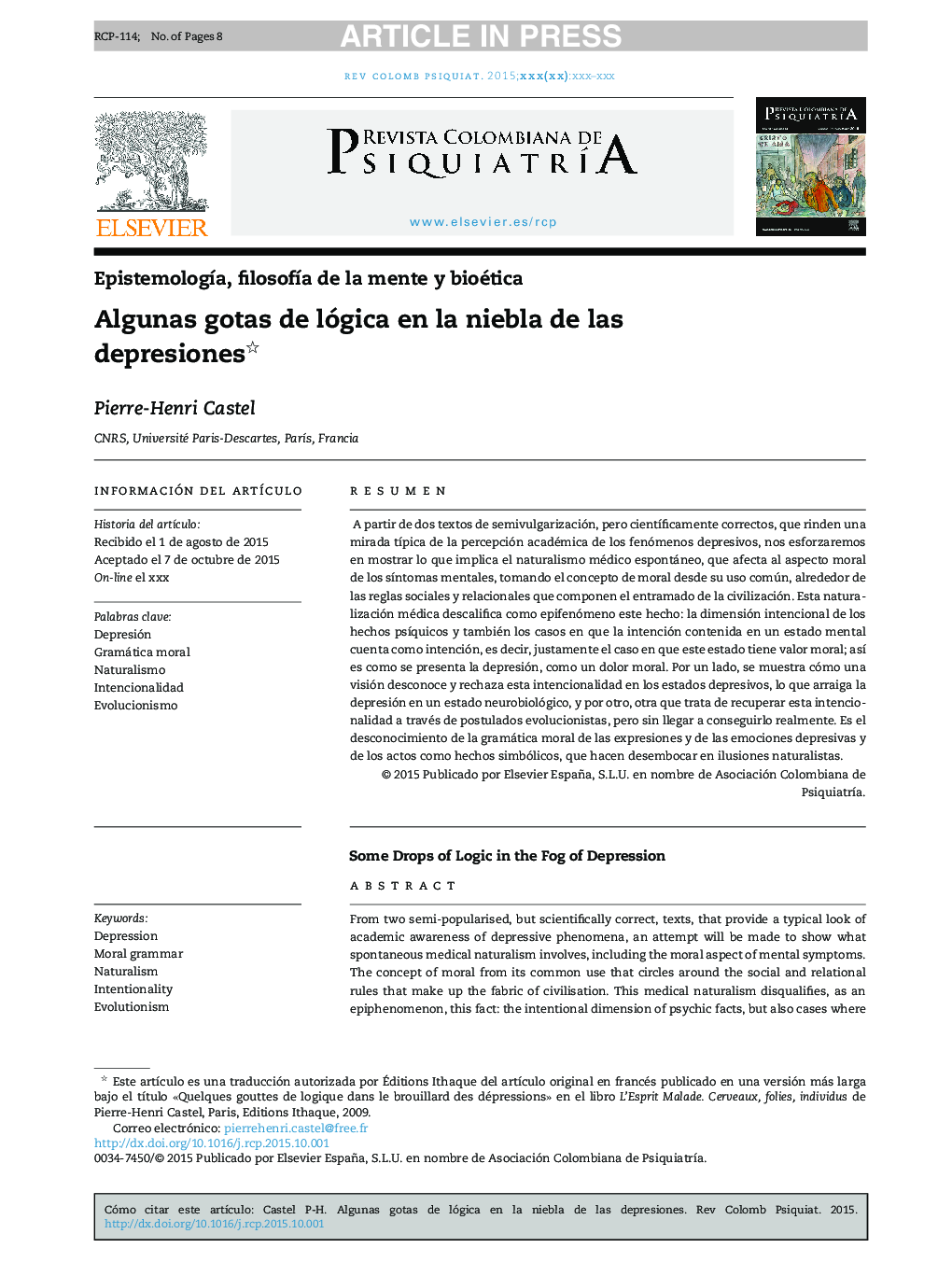| Article ID | Journal | Published Year | Pages | File Type |
|---|---|---|---|---|
| 4190563 | Revista Colombiana de Psiquiatría | 2016 | 8 Pages |
Abstract
From two semi-popularised, but scientifically correct, texts, that provide a typical look of academic awareness of depressive phenomena, an attempt will be made to show what spontaneous medical naturalism involves, including the moral aspect of mental symptoms. The concept of moral from its common use that circles around the social and relational rules that make up the fabric of civilisation. This medical naturalism disqualifies, as an epiphenomenon, this fact: the intentional dimension of psychic facts, but also cases where the intention contained in a state of mind counts as intended, i.e. precisely the case where this state has a moral value. This is how depression is presented, as a moral pain. On the one hand, it is shown how a vision rejects and disavows intentionality in depressive states, rooting depression in a neurobiological state, and on the other, another one that tries to recover this intentionality through evolutionary postulates, but without actually achieving it. It is the ignorance of the moral grammar of depressive expressions and emotions, and of acts, as symbolic facts, that lead to naturalist illusions.
Related Topics
Health Sciences
Medicine and Dentistry
Psychiatry and Mental Health
Authors
Pierre-Henri Castel,
